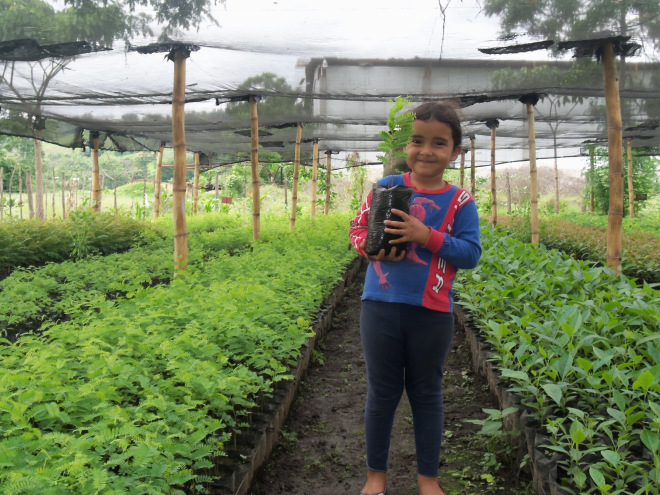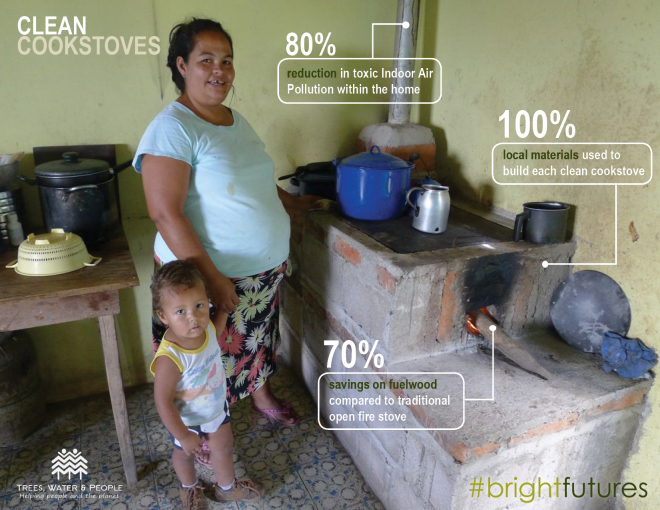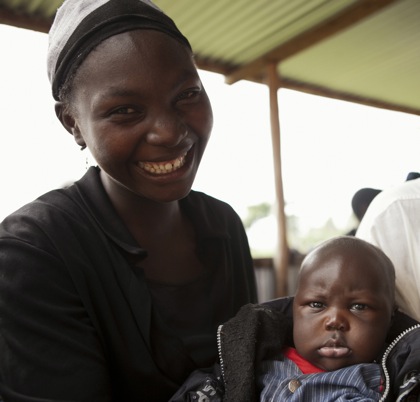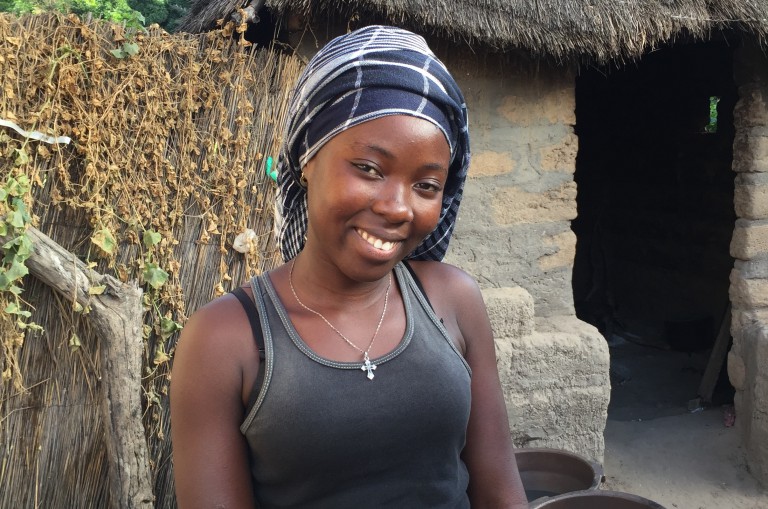
Humanist Grants Q4 beneficiaries deliver on innovation, research and community involvement.
By AdministratorOctober means a new slate of our Humanist Grant beneficiaries! It's hard to believe that quarter four is already upon us, but we're thrilled to announce the nonprofits we will be supporting for the last three months of 2017. We look forward to our partnership with each of them.
First is our Natural World beneficiary, Trees, Water & People, (TWP.) TWP's work concentrates on community-based decisions and innovative programming. Projects include clean cookstoves, sustainable building, renewable energy, and reforestation.
 Reforestation efforts recognize the broad approach necessary for success. In areas where deforestation is already occurring, TWP works to protect current forest stands. They also cultivate tree nurseries and planting projects at family homesteads and near forest edges (Featured photo above.) They teach best practices in tree management to maintain the highest quality tree diversity in their region
Reforestation efforts recognize the broad approach necessary for success. In areas where deforestation is already occurring, TWP works to protect current forest stands. They also cultivate tree nurseries and planting projects at family homesteads and near forest edges (Featured photo above.) They teach best practices in tree management to maintain the highest quality tree diversity in their region
TWP has worked with local organizations to add fuel-efficient cookstove technology to their services to reduce pressure on the local forests from which fuelwood is harvested, as well as reduce indoor air pollution and it's been very successful, "After several years of prototyping designs with Utz Che' communities and Guatemalan manufacturers… we embarked on the full-scale implementation of 500 clean cookstoves manufactured by two local enterprises – ECOCOMAL and Estufa Dona Dora. The project was so successful that this year we are raising funds to install 500 more in high-need communities."
Next is our Poverty & Health beneficiary, Development in Gardening (DIG). DIG teaches techniques for planting small garden plots near their clients' homes. They teach positive nutritional behaviors stressing that malnutrition complicates all chronic illnesses. All of their strategies are influenced and guided by principles of women's engagement and gender equity as a way to increase production of small gardens.
 Twenty-four-year-old Emily (right) is the second youngest participant in the DIG training. In addition to her contagious laugh, she has an innate talent for organic agriculture which is visible in her huge garden at her home in Kameji Village where she has planted an amazing variety of cowpeas, kales, onions, cilantro, carrots, French beans, pumpkins, and spider plants. "From the things we get here (at the DIG training), we go and plant them in our garden." Emily continues, "We save lives, improve our nutrition, then we also have some little money from the garden. I think I am employed in my garden. It is like my self-employment!'"
Twenty-four-year-old Emily (right) is the second youngest participant in the DIG training. In addition to her contagious laugh, she has an innate talent for organic agriculture which is visible in her huge garden at her home in Kameji Village where she has planted an amazing variety of cowpeas, kales, onions, cilantro, carrots, French beans, pumpkins, and spider plants. "From the things we get here (at the DIG training), we go and plant them in our garden." Emily continues, "We save lives, improve our nutrition, then we also have some little money from the garden. I think I am employed in my garden. It is like my self-employment!'"
Women's Global Education Project (WGEP) is our latest Education beneficiary. WGEP provides students need-based scholarships, tutoring, mentorship, and afterschool girls and boys clubs. WGEP provides health awareness and prevention education for girls. They have been successful in creating programs to promote an alternative rite of passage ritual for teenager girls as opposed to the ritual of genital cutting and mutilation.
 Martha (left) one graduate of WGEP's Sisters to School program in Senegal, was recently interviewed about her experiences and the obstacles she has overcome: "My parents sent me away to Dakar for middle school because they knew I would have better academic opportunities there. I was away from them for eight years, returning home only during long school breaks." Martha was kept busy not just with studying but also with her work as a maid.
Martha (left) one graduate of WGEP's Sisters to School program in Senegal, was recently interviewed about her experiences and the obstacles she has overcome: "My parents sent me away to Dakar for middle school because they knew I would have better academic opportunities there. I was away from them for eight years, returning home only during long school breaks." Martha was kept busy not just with studying but also with her work as a maid.
Even with all of that, she returned to high school and was selected as a WGEP Sisters to School scholar. "I was accepted to Gaston Berger University … where I will be starting my second year soon. I am very proud of where I come from. I never want to forget the people who helped me achieve what I have to-date. That is why I became an intern for the Our Sisters Read and Sisters to School programs. I hope to…ultimately become a Communications Director for an NGO. I want to communicate the mission and good work of organizations like WGEP to help more girls like me achieve their dreams."
Our Human Rights beneficiary, The Sentencing Project, has over 30 years of experience in the field of fair and equitable sentencing practices. They work under a series of important and often overlapping key ideas: fair sentencing, incarceration, felony disenfranchisement, racial disparity, drug policy, juvenile justice, women, and collateral consequences.
 One area of their work addresses how voting laws apply to people with convictions. Maryland changed their voting laws from a lifetime ban on voting to allow ex-offenders to vote upon the completion of their sentences. This allowed people like David Waller to become a registered voter, at the same time as his 18-year-old son. "Those of us that are ex-offenders can contribute positively to the social order," said Waller. "As an ex-offender, to be stripped from voting means we lose the right to citizenship."
One area of their work addresses how voting laws apply to people with convictions. Maryland changed their voting laws from a lifetime ban on voting to allow ex-offenders to vote upon the completion of their sentences. This allowed people like David Waller to become a registered voter, at the same time as his 18-year-old son. "Those of us that are ex-offenders can contribute positively to the social order," said Waller. "As an ex-offender, to be stripped from voting means we lose the right to citizenship."
Our beneficiaries have years of experience in their fields. Trees, Water & People, Development in Gardening and Women’s Global Education are community-based experts in their fields, all doing innovative and consistent high-quality work.
Remember, as an FBB member, you can change your donation amount or the percent designated to any beneficiary at any time on our website. If you aren't currently a Humanist Grants member, you can become one here.
